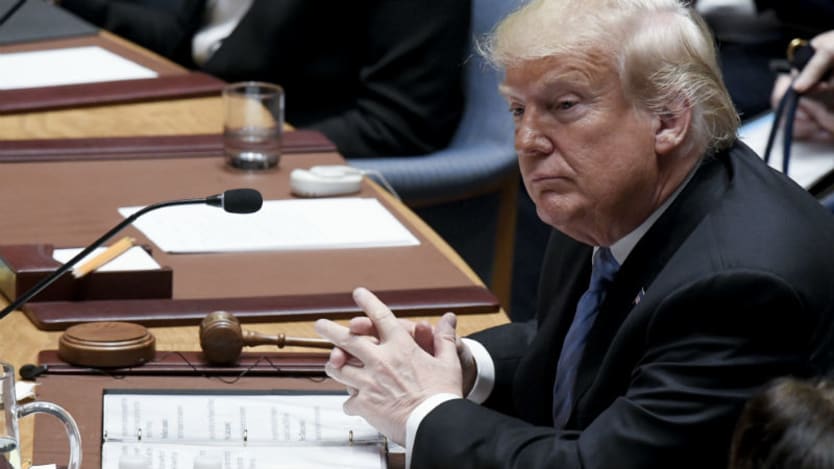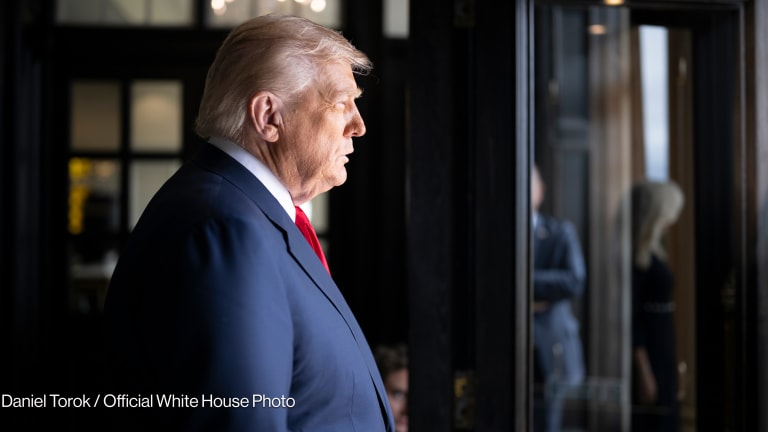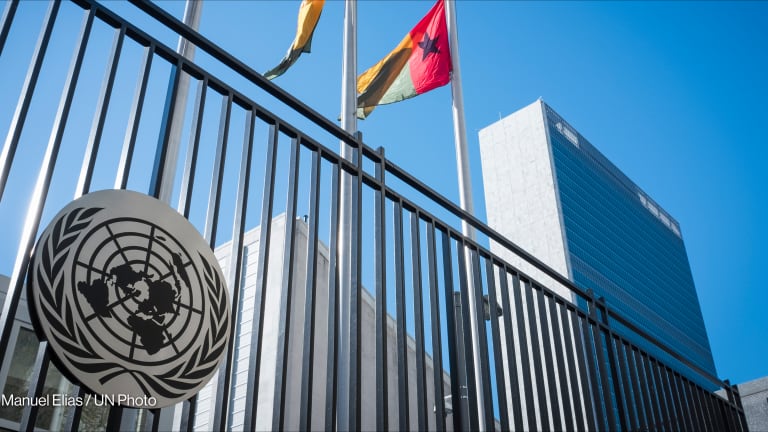US aid experts ask — how much will Trump's development review matter?

WASHINGTON — The fate of the Trump administration’s foreign assistance review has been a lingering question for the U.S. aid community for months. Now that it appears the process will likely produce some kind of policy outcome, the next question on everyone’s mind is whether or not it will matter.
People with knowledge of the foreign assistance review process believe U.S. President Donald Trump will refer to it in his speech at the United Nations General Assembly next week, though they said even some within the administration are not sure what to expect. One development expert who spoke anonymously to share details from private conversations told Devex that U.S. officials are still talking about “if and when” the document is signed by the president and released to the public.
While many expected the review process to conclude months ago, a public announcement in New York would make some sense. Trump first announced the foreign assistance review in his speech at UNGA last year.
“We will examine what is working, what is not working, and whether the countries who receive our dollars and our protection also have our interests at heart. Moving forward, we are only going to give foreign aid to those who respect us and, frankly, are our friends,” he said at the time, adding that the process would be led by Secretary of State Mike Pompeo.
The review process has been contentious, according to people with knowledge of it.
It was initially led by a National Security Council staffer named Kevin Harrington, with the backing of former National Security Adviser John Bolton, who left the administration last week. The initial document was roughly 60-pages long, according to George Ingram, a senior fellow at the Brookings Institution and co-chair of the Modernizing Foreign Assistance Network. Government officials described it as a “60-page thesis,” according to the development expert with knowledge of the process.
“What you have, in my mind, is a few aid skeptics at OMB and NSC trying to grab hold of the interagency process.”
— George Ingram, a senior fellow at the Brookings Institution and co-chair of the Modernizing Foreign Assistance NetworkThat 60-page document was then subject to an interagency review that included the State Department and the U.S. Agency for International Development, resulting in a 6-page document that has been circulating in the U.S. development community — which Politico first reported on earlier this month and Devex subsequently obtained — the source said.
This document — entitled, “Realigning Foreign Assistance for a New Era of Great Power Competition” — is believed to be the penultimate draft. According to both Ingram and the source with knowledge of the process, Treasury Secretary Steven Mnuchin took issue with a section on reforming the multilateral development banks and lobbied to have edits made before the document is finalized.
Ingram contrasted this review process with the lengthy interagency effort that produced former President Barack Obama’s Presidential Policy Directive on Global Development in 2010 — which Trump’s new policy would supersede and replace.
“This one went through an interagency attack of trying to strip out some of its more strident elements,” Ingram said.
The State Department and USAID were able to introduce caveats into the policy document, according to the development expert with knowledge of the process. Those caveats and moderating phrases are clearly evident throughout the draft.
For example, a section related to graduating countries and organizations from foreign assistance begins by instructing agencies to, “Reserve foreign assistance for the neediest cases and move countries and organizations that can stand on their own off of foreign assistance (“graduation”), as judged by objective metrics.”
It concludes: “unless such foreign assistance supports overriding United States strategic interests.”
#UNGA74 is upon us. Find out what Devex is up to — and how to get in touch with us in New York.
A second point directs agencies to, “Reduce, reprogram to other recipients, or eliminate foreign assistance benefiting a country when its government is making policy choices that run counter to the United States interests or policy in providing foreign assistance, to avoid subsidizing those choices or wasting foreign assistance resources.”
It concludes: “except in the rare cases when overriding strategic, national security, or humanitarian considerations make cooperating with such governments necessary.”
Given the unorthodox process that produced the document, development experts are skeptical about how much influence it will actually have.
“State and AID and [the Millennium Challenge Corp.], and the [Development Finance Corp.] aren’t going to be going out of their way to implement this policy, or to follow it, one would guess,” Ingram said.
“What’s the practical import of this policy, besides being a statement by the aid skeptics in the administration?” he added.
The source with knowledge of the situation said that USAID’s leaders believe the contents of the review aligns well with the agency’s “journey to self-reliance” framework that Administrator Mark Green has put in place, to the extent that it calls for greater commitment to development from country partners, and an emphasis on prioritizing programs that produce verifiable results.
The open question for many at this point is whether the resulting policy statement — if and when it appears — will have any bearing on the administration’s foreign aid budget process. On this point, development advocates are particularly worried about one element contained in the draft document, the creation of a new “Foreign Assistance Policy Coordination Committee.”
This committee will be created and convened by the National Security Council, and co-chaired by the Office of Management and Budget, which has been the driving force behind repeated efforts to rescind U.S. foreign assistance funds on the basis that they represent wasteful, ineffective government spending.
Some worry the review — and whatever it ultimately leads to — could be used to justify the next round of budget cuts or even future rescissions. They also point out that OMB’s attempt to use its budget authority to drive policy — in this case, a crackdown on foreign aid spending — represents an alarming development in its own right.
“What is OMB’s role in setting policy? Never existed,” Ingram said.
“What you have, in my mind, is a few aid skeptics at OMB and NSC trying to grab hold of the interagency process. That, in some ways, institutionally, is the most radical, strident aspect of this, whatever it is,” he added.
Search for articles
Most Read
- 1
- 2
- 3
- 4
- 5








